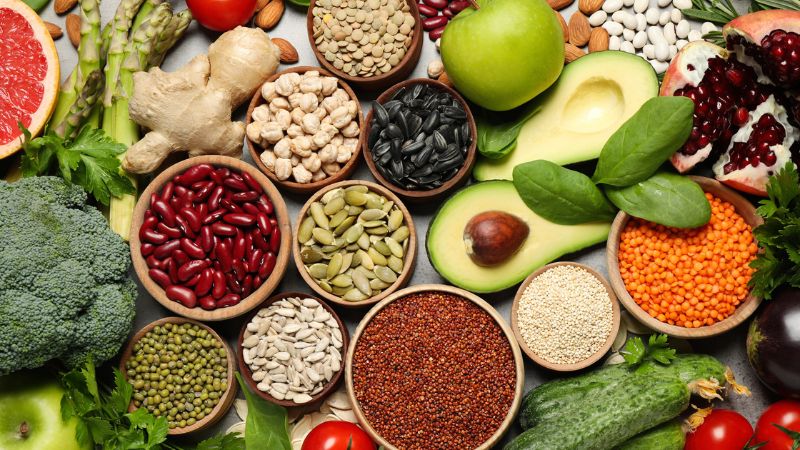Including high-fiber vegetables in your diet is essential for maintaining good digestive health, regulating blood sugar levels, and lowering cholesterol. Fiber-rich foods also help you feel full, which can aid in weight management. Here are seven high-fiber vegetables that you should consider adding to your diet for their numerous health benefits.
Carrots

Carrots are a fantastic source of soluble fiber, which is beneficial for lowering cholesterol and stabilizing blood sugar levels. They belong to the same plant family as parsnips and celery and are packed with essential nutrients like beta-carotene, which the body converts to vitamin A, promoting good vision and a strong immune system. Additionally, carrots provide plant chemicals like lutein and carotenoids, which have been linked to reduced risk of chronic diseases.
Broccoli
Broccoli, along with kale and Brussels sprouts, is part of the cabbage family. It is an excellent source of both soluble and insoluble fiber, which aids in feeding your gut flora and maintaining a healthy digestive system. Broccoli is also rich in sulforaphane, a compound that has been shown to have cancer-fighting properties. Adding broccoli to your meals can help improve your overall gut health while providing a powerful dose of antioxidants.
Beetroot
Beetroot, a root vegetable, is known for its vibrant color and high fiber content. It contains both soluble and insoluble fiber, making it beneficial for digestive health. Beetroot is also rich in nitrates, which can help dilate blood vessels and lower blood pressure. This makes it a great addition to your diet if you are looking to improve cardiovascular health. You can enjoy beets roasted, in salads, or even as a juice.
Cauliflower

Cauliflower is another member of the cabbage family that is low in carbohydrates and high in fiber. Most of its fiber content is insoluble, which helps add bulk to the stool and promotes regular bowel movements. Interestingly, the fiber content in cauliflower increases when it is cooked. This versatile vegetable can be used in a variety of dishes, from mashed cauliflower to cauliflower rice, making it an excellent low-carb alternative to grains.
Bitter Gourd
Bitter gourd, also known as bitter melon, is a tropical vegetable that lives up to its name with its distinct bitter taste. Despite its bitterness, it is a low-calorie vegetable with a high soluble fiber content. Bitter gourd is known for its potential to regulate blood sugar levels, making it beneficial for people with diabetes. It can be consumed in various forms, such as in stir-fries, soups, or even as a juice, to take advantage of its health benefits.
Eggplant
Eggplant, although it resembles a vegetable, is actually a fruit that belongs to the nightshade family, which also includes tomatoes. It is a versatile source of fiber, offering both soluble and insoluble fiber. Eggplant is also low in calories and rich in antioxidants like nasunin, which helps protect cells from damage. You can enjoy eggplant grilled, roasted, or incorporated into dishes like ratatouille for a fiber-rich addition to your diet.
Collard Greens

Collard greens are leafy vegetables that belong to the cabbage family and are rich in soluble fiber. Like broccoli, they help feed your gut flora and support a healthy digestive system. Collard greens are also high in vitamins A, C, and K, as well as minerals like calcium and iron. These greens can be used in salads, soups, or simply sautéed with a bit of olive oil and garlic for a nutritious side dish.




